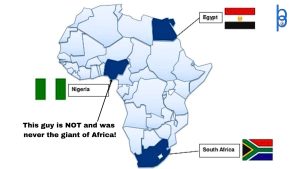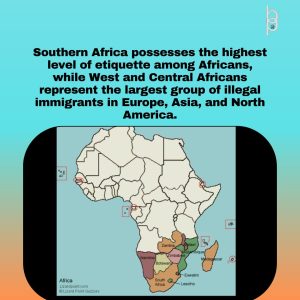
In Nigeria, a nation with a population of over 200 million, it is a known fact that numbers have influenced major decisions within the polity, from census numeration to elections and voting; numbers play a fundamental part in the Nigerian identity and habitation. According to statistics, there are over 130 million Nigerians under the age of 25 and despite this staggering demography, only 3% of the old population rule over the most populous African nation. This startling statistic has resulted in voter apathy and the general disinterest of young Nigerians who are eager to take on leadership roles in their communities and in the country at large. Despite the systemic barriers in place, Nigerian youths have shown time and again that they have the capacity to lead in various fields.
It is no secret that Nigeria’s youth are talented, creative, and innovative. In sports, for example, Nigeria has produced some of the world’s most skilled athletes, including footballers like Jay-Jay Okocha and Kanu Nwankwo, and basketball players like Hakeem Olajuwon. In the arts, Nigeria has produced world-renowned playwrights and novelists like Wole Soyinka and Chimamanda Ngozi Adichie. In entertainment, Nigerian youths have gained international recognition for their music, movies, and fashion which have over time transcended into pop culture. Nigeria’s Nollywood film industry, for example, is the second largest in the world, after Bollywood, and is worth over $3 billion. In science and technology, Nigerian youths are making significant strides, with young tech entrepreneurs like Mark Essien (founder of Hotels.ng) and Iyinoluwa Aboyeji (co-founder of Andela) making a name for themselves on the global stage.
Despite this undeniable talent and potential, Nigerian youths continue to face significant barriers when it comes to accessing political power. For instance, in 2018, the Nigerian government passed the “Not Too Young to Run” bill, which lowered the age requirement for running for political office in Nigeria. However, this bill was just in name only, as most political parties charge exorbitant fees for party tickets, making it almost impossible for young Nigerians to afford. Furthermore, political parties often prioritize the interests of their older, more established members over those of younger, up-and-coming members; as they claim the older politicians have the structure, means, capacity, and financial resources to sponsor political party projects, campaigns, and conventions.
As a result, Nigerian youths have been shut out of the political process, despite their demonstrated capacity to lead. This situation is not just a tragedy for young Nigerians; it is also a threat to the country’s stability and development. Nigeria is a relatively young democracy and country, with over 60% of its population under the age of 25. If these young people are not given a voice in governance, then their concerns and aspirations will go unheard, and the country will suffer as a result.
The promise that “no one shall be left behind” is a cornerstone of the Sustainable Development Goals established by the United Nations. While the 2030 Agenda is global in scope, Nigerian youths must be taken into account in all goals; especially the 4 areas mentioned by the UN—youth employment, teenage females, education, and sports for peace. However, the future of youths in partisan politics and secular leadership remains opaque.
There is hope, however, and that hope lies in the power of a united youth. If young Nigerians can come together, they can achieve great things and change the status quo of leadership in the country. The #EndSARS protest of 2020 is an example of the power of a united Nigerian youth. The protests were organized mainly by young Nigerians and were aimed at ending police brutality and bad governance in the country. Despite the government’s violent crackdown on the protests, young Nigerians continued to mobilize, both online and offline, and their voices were eventually heard.
The #EndSARS protests showed that Nigerian youths have the power to effect change in the country, even in the face of malignant opposition. However, to fully harness this power, young Nigerians need the support of the older generation. If the current leaders in Nigeria were truly invested in enabling young people to take on leadership positions, they could endorse and sponsor them. They could also create policies that prioritize the interests of young people, such as reducing the cost of party tickets and increasing the representation of young people in government appointments and public offices.
In conclusion, Nigeria’s youth have demonstrated their capacity to lead in various fields. Today, a considerable chunk of youths in Nigeria are also equipped with sufficient information and knowledge to understand that the socio-cultural factors which have plagued the nation and split identities over the years are in fact a ploy to separate the youths; because a united youth population in Nigeria can achieve the unimaginable and drive the nation toward collective goal-oriented objectives that can lead to national development.
-Writer: Oche Anejo-







